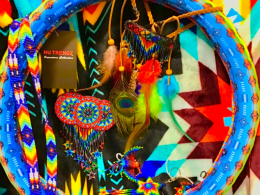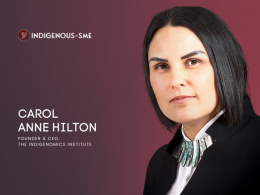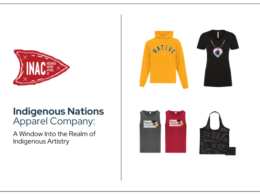The 1950s witnessed a large number of Aboriginal people moving into larger urban areas. As a result, Friendship Centre emerged to aid Aboriginal newcomers to the city and provide specialized services.
The purpose of these agencies was to provide referrals and offer counseling on employment, housing, education, healthhealth, and liaison with other community organizations.
Soon, the number of Friendship Centres increased when the demand for services by urban migrating First Nations, Inuit and Métis people increased. This called for rapid amplification of the nature of programming and services.
By the 1960s, Friendship Centres began to organize into Provincial/Territorial Associations. A steering committee of Friendship Centers was formed to investigate the viability of creating a national organization to represent the expanding number of Friendship Centers.
Friendship Centers relied heavily on individual volunteers and their capacity to raise operational finances through a variety of fundraising activities, which included receiving minor grants from foundations, federal, provincial, and territorial governments, as well as private donations.
As the number and structure of Friendship Centres evolved, so did their nature. They started changing from referral sources to “front-line” social service delivery systems.
During the 1970s, the Government of Canada formally recognized the success of Friendship Centres and implemented the Migrating Native Peoples Program (MNPP).
Expanding Its Possibilities
In 1976, a government evaluation of the MNPP revealed the crucial role that Friendship Centers played in the communities they served and the broad foundation of community support they had developed.
They could also utilize limited resources creatively and flexibly while remaining accountable to their communities. As a result, Friendship Centers have continued to grow despite many obstacles through the programs and services offered to urban Aboriginal people.
In 1983, the National Association of Friendship Centres and the Department of the Secretary of State (DSOS) successfully negotiated the evolution of the MNPP to an enriched Native Friendship Centre Program (NFCP). The program was formulated with a five-year mandate and formally recognized “Friendship Centres” as legitimate urban Native institutions responding to the needs of Native people.
In 1988, the NFCP renamed the Aboriginal Friendship Centre Program (AFCP) with permanent funding from DSOS.
In 1996, the administrative responsibility for the AFCP was transferred from the Department of Canadian Heritage to the NAFC, which fundamentally changed its funding relationship.
According to the new agreement, the NAFC administers all operational funding for the AFCP to Friendship Centres and the PTA. This transfer signified a new era in Aboriginal/Government relations and paved the way for a unique relationship with the Government of Canada.
It demonstrated a commitment by the government to improve the capacity and sustainability of Aboriginal organizations.
Aiding Indigenous Development
The Aboriginal Friendship Centre of Calgary is a non-profit organization that aims to provide social, cultural, education and employment services to the Aboriginal peoples within the Calgary Metropolitan area. It is a community leader promoting Aboriginal social and cultural services while supporting and acting as a local and regional resource for other Aboriginal Service Agencies.
Their community partnerships with existing agencies enable them to provide culturally relevant services to the urban Aboriginal peoples of the Calgary Metropolitan Area.
They strive to remove barriers and empower the urban Aboriginal community through cultural reconnection, programs, services, and access to resources that address people’s social and economic realities.
They aim to provide an Indigenous cultural connection through programs and services for the urban population.
They stress the values of inclusion, accountability, respect, innovation, support, collaboration, humility, and transparency in all the AFCC’s interactions with community members, partner agencies, donors, and government.
Their services focus on providing care for children, the elderly, and the homeless. In addition, they work to enable access to cultural and spiritual care, offer referrals for suitable housing, food, and clothing, and pursuit of education, skill development, and training that build a resourceful Indigenous community.
Their programs are centered on and focus on Indigenous cultural reconnection, cultural education, and sharing with non-Indigenous participants.
Growing Strong
More than 50 years after Friendship Centers were first established in Canada, the Friendship Center Movement has grown and continues to provide urban Aboriginal people across Canada with the same essential programs and services.
The Friendship Center Movement is unique in its broad spectrum of specialized services for urban Aboriginal people across Canada.
Friendship Centers provide a wide array of programs and services, including culture, family, youth, sports and recreation, language, justice, housing, health, education, employment, economic development, and various miscellaneous projects ranging from social activities to community building initiatives and special events.
Aboriginal Friendship Centre of Calgary provides numerous programs and services to support Calgary’s urban Indigenous community. For more information, visit their website at https://www.afccalgary.org/.
Indigenous people set an example to be followed in terms of their support networks and community assistance. To read more about these initiatives, subscribe to Indigenous SME Business Magazine and for the latest updates, check our Twitter page @IndigenousSme.







